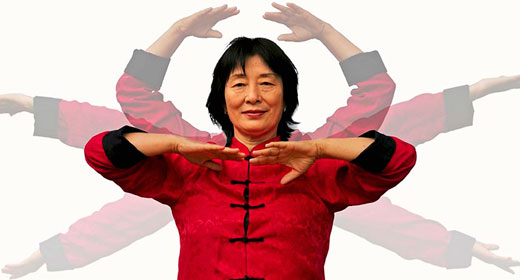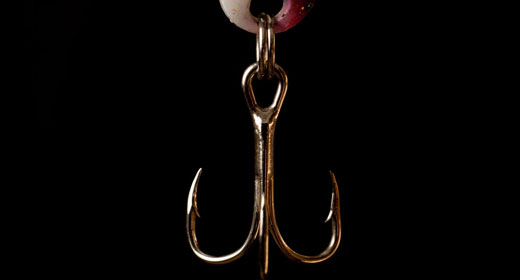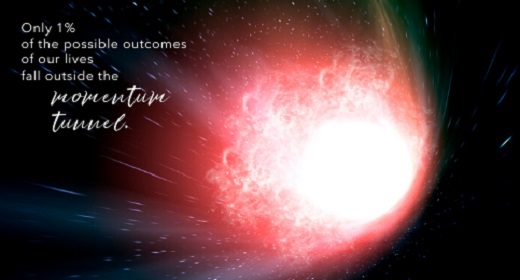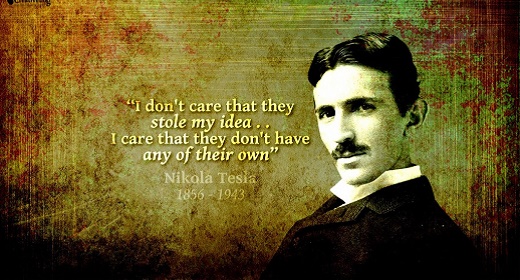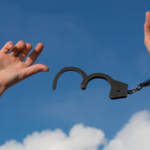Donna Quesada: Dr. Ornish, it’s a pleasure to have you with us again. I so enjoyed our last interview and I’m so happy to go deeper into your new book

and the themes that you shared with us that promote wellness. On every level… body, mind and spirit. And as you know, we have a tradition here, at Awaken and although we’ve spoken before, I’d like to ask you… As you sit here today, what does it mean to Awaken?
Dr. Ornish Ornish MD: Wow. That’s a big question. I don’t think I’ve ever been asked that before. To awaken is to realize what’s real. And to me, awareness is the first step of healing. And being awake is a powerful way of recognizing and connecting the dots between what we do and how we feel and how we are. From a spiritual standpoint, awakening means that you awaken to the reality that on one level, you are separate. You are you and I am me. On another level, we are part of something larger that connects us… whatever name we give to that. Even to give it a name is to limit what is a limitless experience. And from my limited experience, that is where healing is at it’s most profound.
Even the word healing comes from the word to make whole. Yoga comes from the Sanskrit “to yoke.” To unite. Together. And anything that brings us together is healing or holy or sacred. Sacred, as in “the most fun,” “the most pleasurable,” “the most erotic,” “the most liberating,” “The most fun and joyful.” So, my interest in this comes from me being suicidal and depressed in college. That was my doorway. The opposite of awakening. I was in darkness. And I take solace in the fact that the light drives out the darkness. So, for me, I learned from that dark period, these simple techniques… eat well, move more, stress less and love more. They are like shining a light in the darkness. They are powerful. And the light and the darkness don’t co-exist. The light drives out the darkness.
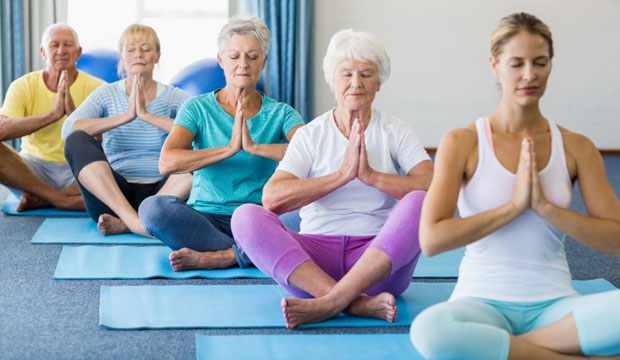
But as a Dr, it’s not something I was really trained to teach people how to do. I was trained to view pain as the enemy. To kill it. To numb it. To bypass it. Literally and figuratively. And yet, pain is really the universe’s way of getting our attention and saying, “Hey! Listen up! Pay attention! Wake up!”
To awaken… To stop doing the things that were causing you to suffer. You have other choices that make life much more joyful and meaningful. And by the way, healing often occurs in that process. Our body often has a remarkable capacity for healing, if we just stop doing what’s causing the problem.
DONNA: And you’ve worked for so many years as a healer. For those who may not be familiar with your story and background… Would you be able to say that there was one thing that was instrumental in your awakening? In pulling you out of that dark time in your life… those college years?
DEAN: Well, there was. And awakening to me, is an ongoing process. It’s not binary. But I got suicidally depressed when I was in college and was all ready to do myself in. It’s a long story that I wrote about in a couple of my earlier books. But the short version is, I felt like I was stupid. I was at a school with a bunch of smart kids. Now that I was in a school with a lot of really smart people, it was just a matter of time before admissions realized they made a mistake by letting me in. But even more depressing than that was, I had what was a spiritual vision, which was more than I could handle at the time… which is that nothing can bring lasting happiness. And the combination of feeling like I was a fraud, an imposter, and was never going to amount to anything… that even if I did, it wasn’t going to matter anyway. Well, why bother, you know? So, I thought, dead people… they look like they are peaceful… why don’t I just… Why prolong the inevitable? Why prolong the agony? Let’s just do myself in.
And I was all set to do that. I ran myself down so badly that I got this horrible case of infectious mononucleoses, and didn’t even have the energy to roll over in bed. So meanwhile, my parents realized what a wreck I was. They came down and I withdrew and went home to Dallas. This was back in 1972. January of ’72. And my plan was to get strong enough to kill myself… as crazy as that sounds. My older sister had really benefited from studying with a spiritual teacher, named Swami Sachidananda. And there is an old saying, “when the student is ready, the teacher appears.” And that was certainly true for me.
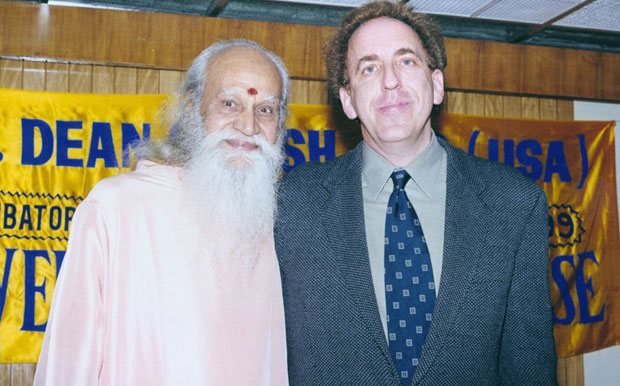
So, my parents decided to have a cocktail party for the Swami. Today, that would be weird in Dallas, but back then, it was 1972. So, in walks this central casting idea of what a Swami should look like. Long white beard and saffron robes and the whole thing. And he gave a talk…a satsang in our living room, and he started by saying, “Nothing can bring you lasting happiness.” Which I had already figured out, but he was glowing and I was ready to do myself in. What am I missing here? And he went on to say what might sound like a New Age cliché to some people, but it really turned my life around… which was that nothing can bring you lasting happiness. That’s the bad news. The good news is that we already have that. It’s our nature to be happy and peaceful. And not being mindful of that, we go after things that we think are going to bring that to us. If only I had whatever. More money, more power, more sex, more beauty, more accomplishment… whatever. If I had “blank”… You fill in the blank, then I’d be happy. Then I wouldn’t feel so depressed. People would love me and everything would be good.
What we don’t realize, and this is what I learned from this guy… that once you set up that view of the world, however it turns out, you generally feel bad. Until you get it, you feel bad. If someone else gets it and you don’t, then you feel really bad. It reinforces this zero-sum game view of the world. The more you get, the less there is for me. This very competitive thing. But even if you get it, it’s very seductive because in the moment, it seems like, oh, I’m happy now. These things really did make me happy, but it doesn’t last and it’s invariably followed by either “now what? It’s never enough,” or, “so what?” A feeling like, it doesn’t provide a lasting meaning or purpose in my life.
DONNA: And so, what’s the next thing?
DEAN: Exactly. The cycle goes on. One of my patients said, “the let down that comes from accomplishing a goal is so great… I always make sure I have a dozen projects going, so I can immediately shift my attention to something else.” Now, what I learned from the Swami is that these practices, these spiritual practices, like meditation and yoga, weren’t developed by the ancient swamis to bring you a sense of peace, to unclog your arteries, or lower your blood pressure, or reverse prostate cancer, or lengthen your telomeres or all the things we’ve learned that they can do. They are profound tools for quieting down our minds and bodies to experience the truth that we have that already. And perhaps the great irony is that being mindful of that, we end up running after these things, in the process of striving for what we think is going to bring us happiness and peace… we end up disturbing what we could have already, if we just stop doing that. And the Swami… he was a very ecumenical teacher. He built a temple on the James River in Virginia, called The Lotus Temple, which had a central beam of light going down the middle, and this turns into beams that illuminate the altars of all the different religions. The truth is that one path is many. All these paths, if you take them far enough, will take you to that place. And the idea is that these techniques don’t bring us a sense of peace, but at least temporarily, they help us from disturbing what is already there. Now that may sound like a semantic parsing of words but the implications are profound because if we have to get it from outside ourselves, then everyone who has what we think we need has power over us. And until we get it, we are not going to be happy. But if it’s me then I can do something about that. The question shifts from “how can I get what I need to be happy and peaceful and healthy?” to “What am I doing that is disturbing my own happiness and health?” Not to blame myself, but to empower myself because I can do something about that. So, I got little glimpses of that when I got so depressed in college. Eat a plant-based diet and meditate and exercise and have more love and support in your life. And I said, “I can always kill myself… move onto Plan B.” And I got little glimpses of what that meant.
DONNA: I’ll kill myself later.
DEAN: I’ll kill myself later. Right. And later, I realized that if you kill yourself, you are not really killing yourself anyway. You are just killing your body. Your soul and your astral body go on and now you just don’t have a body. That’s more difficult. The paradox is that when I thought I had to get all these things in order to be happy and healthy, I ran myself down so badly that I couldn’t read a headline on a newspaper and tell you five minutes later what it said. But, as I came more inwardly defined… You can say that we are born fine and then we define ourselves. We get stuck in all these definitions. When I became more inwardly defined that I was actually able to go back to school… graduated first in my class. Went to medical school. I say that not to brag, but I experienced both ends of that spectrum.
DONNA: Everything shifted.
DEAN: Everything shifted and it was all an internal process. The other thing that happens, when you talked about awakening earlier, when we first started… is that, when you meditate and you do these spiritual practices… Whatever form they take… they give you that experience. Not just inner peace and well being, but they get you in touch with your own inner wisdom. What the swami called your “inner guru.” Your “inner teacher.” Or, sometimes it goes by “the still small voice within.” It speaks very clearly, but quietly. It gets drowned out by the chatter of every day life. It’s the one that wakes me up at 3 in the morning and says, “Hey Dean, listen up! Pay attention! You are not doing something that is in your best interest!”
I’ve learned to really trust that voice. And all of the studies that I’ve done over the years have come from that place of knowing. We’re doing a study now, to see if we can reverse early stage Alzheimer’s. If anyone is watching this and lives in the San Francisco Bay Area and has or knows somebody who has early stage Alzheimer’s, give us a call. Go to Ornish.com. There is a link there. It’s all free for whoever wants to do that. We are in the middle of a study right now. We’ll come back to that. But the insight comes from that place and I’ve learned that we can access that very intentionally. Particularly, after a meditation when your mind is quieter. I’ve learned to ask myself, “What am I not paying attention to?” I just ask that voice to identify itself with me. You can say, “Hello Dean,” or whatever, and then, I’ll say, “what am I not paying attention to that I need to pay attention to?”
And then, just listen. And it’s amazing what it comes up with. And the other thing that happens in terms of awakening, is that when you go to that place… when you meditate or pray… when you quiet your mind deeply enough… you experience an awakening to a transcendent state: That on one level, we are separate. You are you and I am me. And we can enjoy the conversation we are having now. But on another level, we are part of something larger that connects us.
Even to give it a name is to limit what is a limitless experience… that on one level, we are not separate. We are a part of everything. We are not just apart from… we are a part of everything. And to me, healing is anything that brings us together. And we realize that we are already connected in those ways. What Aldous Huxley referred to as “The Perennial Philosophy.” The spiritual themes that you find once you get past the rituals that people fight and kill each other over, with different religions. “No, I’m right.” “I’m right.” Whatever.
“The Perennial Philosophy”… love and altruism and compassion and forgiveness… is the natural outgrowth of the that direct experience of oneness and inter-connectedness. We are all the same in different forms and different disguises… then compassion just flows naturally from that. Love your neighbor as yourself is a statement of fact.
Read and Watch Part II Here: Awaken Interviews Dr. Dean Ornish #2 Pt II – Reversing Aging On A Cellular Level
Read and Watch Part III Here: Awaken Interviews Dr. Dean Ornish #2 Pt III – The More You Change, The Better You Feel
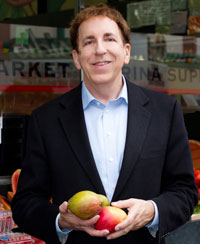 Dr. Dean Ornish, M.D., is the founder and president of the nonprofit Preventive Medicine Research Institute, clinical professor of medicine at the University of California, San Francisco, and the author of six books, all national bestsellers. He has received numerous honors, including the Outstanding Young Alumnus Award from the University of Texas, Austin, and the National Public Health Hero Award from the University of California, Berkeley. Dr. Ornish was recognized as a “TIME 100 Innovator;” by Life magazine as “one of the 50 most influential members of his generation;” by People magazine as “one of the most interesting people of the year;” and by Forbes magazine as “one of the world’s seven most powerful teachers.”
Dr. Dean Ornish, M.D., is the founder and president of the nonprofit Preventive Medicine Research Institute, clinical professor of medicine at the University of California, San Francisco, and the author of six books, all national bestsellers. He has received numerous honors, including the Outstanding Young Alumnus Award from the University of Texas, Austin, and the National Public Health Hero Award from the University of California, Berkeley. Dr. Ornish was recognized as a “TIME 100 Innovator;” by Life magazine as “one of the 50 most influential members of his generation;” by People magazine as “one of the most interesting people of the year;” and by Forbes magazine as “one of the world’s seven most powerful teachers.”

